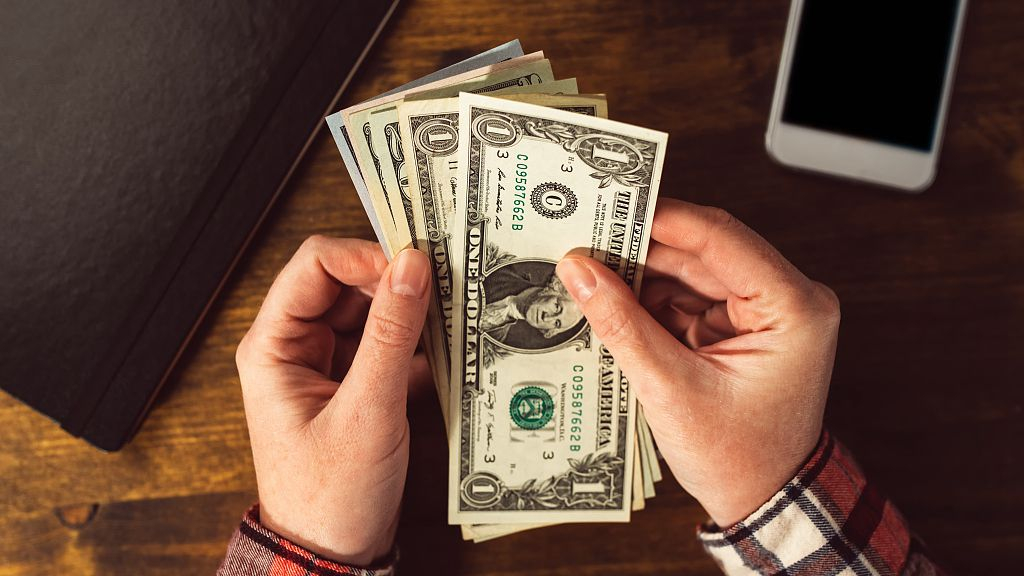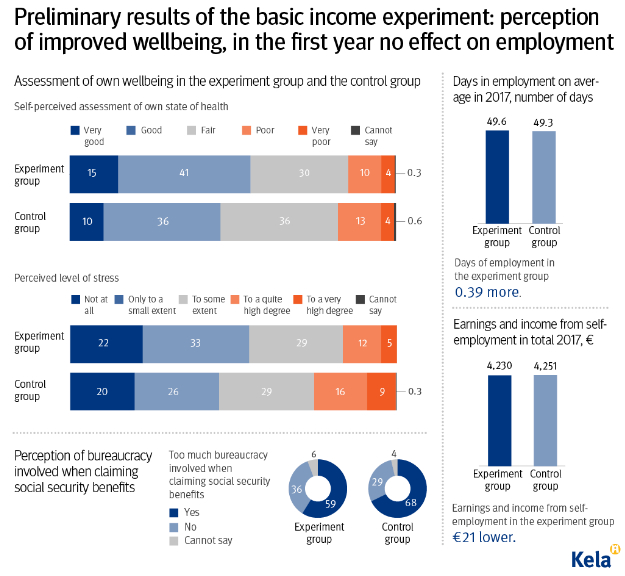
Money Stories
19:20, 17-Feb-2019
Stockton, U.S. starts basic income trial after Finland’s trial
Updated
20:35, 17-Feb-2019
CGTN

Stockton, a city in the United States, with a population over 300,000, began an experiment of universal basic income from Friday. One hundred residents received an extra 500 U.S. dollars in their monthly salary for the next 18 months.
The recipients in the Stockton project will be able to spend the money distributed via pre-paid debit cards without strings attached, CNN reported on Saturday, noting researchers on this project will follow what categories the recipients spend the most in but not the actual purchases.
The whole project was backed with 1 million U.S. dollars donation from the Economic Security Project, an organization that advocates for basic income, according to the report.
Universal basic income
Universal basic income, also known as UBI, is regarded as a solution to poverty and inequality. Many billionaires, including Elon Musk and Mark Zuckerberg, support giving people a regular minimal income.
“Universal income will be necessary over time if AI takes over most human jobs,” Musk tweeted last June when asked about UBI.
Back in 2016, Musk said in an interview with CNBC that "There is a pretty good chance we end up with a universal basic income or something like that, due to automation."
"I am not sure what else one would do. I think that is what would happen," he said.
He is not the only tech titan to support the idea.
Mark Zuckerberg said in his Harvard commencement address in 2017 that “"Let's face it: There is something wrong with our system when I can leave [Harvard] and make billions of dollars in 10 years, while millions of students can't afford to pay off their loans, let alone start a business."
"Now it's our time to define a new social contract for our generation. We should explore ideas like universal basic income to give everyone a cushion to try new things."
Finland's fruitless trial
Stockton is not the first one to try UBI.
After Finland's two-year UBI trial finished at the end of 2018, researchers said the basic income scheme did not increase the employment level of the participants as expected in the first year but did help their wellbeing, according to an initial research result published on February 8 on the website of Kela, Finland's social insurance institution.
The world's happiest country, according to the United Nations, chose 2,000 Finns randomly from the unemployed and paid each of them 560 euros (631 U.S. dollars) each month, and the income would not be changed or reduced if they found work later.

Source: Kela
Source: Kela
"On the basis of an analysis of register data on an annual level, we can say that during the first year of the experiment the recipients of a basic income were no better or worse than the control group at finding employment in the open labor market", says Ohto Kanninen, a research coordinator at the Labor Institute for Economic Research.
Compared with the control group, who has 49.25 days in employment on average during the first year, the recipients of a basic income have 49.64 days, according to the research.
However, the income helps receipts perceived their wellbeing better than the control group. The survey showed that 55 percent of the recipients of a basic income described their state of health as good or very good, while only 46 percent of the control group did the same.
Kela said that it is not yet possible to draw any firm conclusions regarding the effects of the basic income experiment since the data are available with a one year delay, which means that the results for the second year of the experiment will be published in the first few months of 2020.

SITEMAP
Copyright © 2018 CGTN. Beijing ICP prepared NO.16065310-3
Copyright © 2018 CGTN. Beijing ICP prepared NO.16065310-3